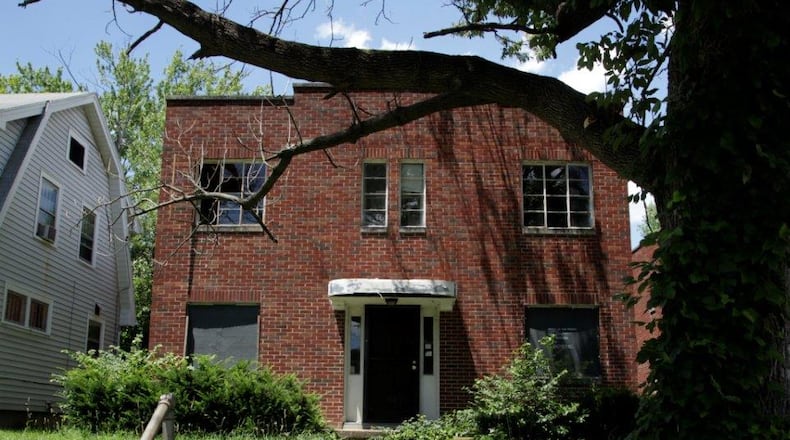“Because of an improving real estate market and the loss of collectible tax revenue associated with the Lot Links program, the Montgomery County Treasurer and the City of Dayton will no longer accept applications through the Lot Links tax foreclosure program,” the city said in a statement.
Ohio court backs foreclosure against Islamic group on Dayton property
Lot Links was started in 2008 by the city to entice potential buyers to invest in properties that would otherwise become dilapidated or unused. The program allowed buyers to pay a fee — usually around $2,000 — and own the property with the delinquent taxes wiped away.
The original thought was the properties could be purchased by neighbors to create side-yards or to improve their own property. However, Montgomery County Treasurer Russ Joseph said the program has turned into a way for investors to obtain properties with structures on them cheaply without paying back taxes.
“The original feeling was that we just wanted to transfer these properties into the hands of good ownership. They were willing to write off the taxes because they weren’t collectible anyway,” Joseph said. “These houses and properties were just sitting there. What that means though is all those tax dollars wrote off is money that’s not going to our local school districts, not going to our human services that folks need. Library, parks all that kind of stuff.”
Joseph will give a presentation today to the Dayton Commission explaining how the market has evolved since the program’s inception and explain how residents can continue to acquire tax-delinquent properties.
MORE: ‘American Factory’: Fuyao CEO disputes translation in Netflix film
He told the Dayton Daily News that at the time it was created, the program made sense, but since the 2008 housing collapse, the Dayton economy and housing market have improved. He said he prefers that the Lot Links program ends and tax-delinquent properties go through the traditional foreclosure process through the courts.
In that method, a foreclosure lawsuit would be filed in Montgomery County Common Pleas Court and once a judge approves the foreclosure, the property would be sold at a sheriff’s auction.
The cash obtained would go to paying court costs, back taxes, other legal obligations and then the original property owner, Joseph said.
“It’s a more fair process because everyone can go to the sheriff’s sale and bid,” Joseph said.
About the Author
